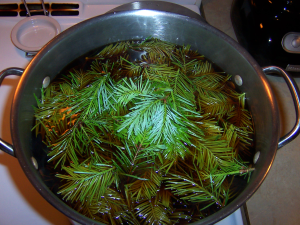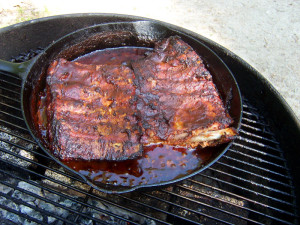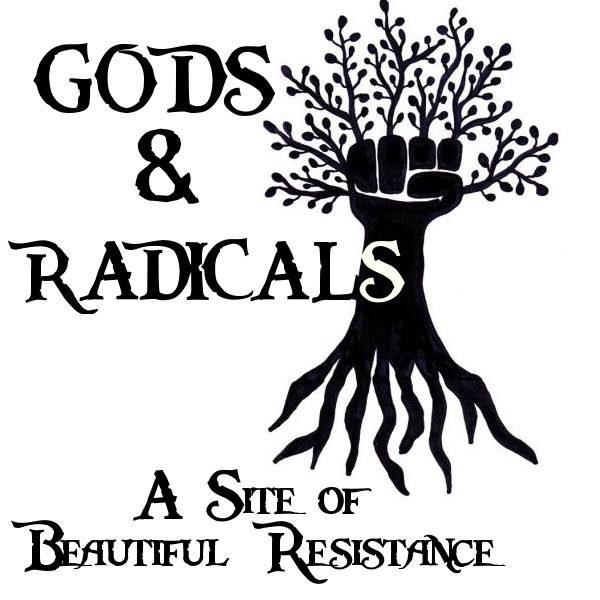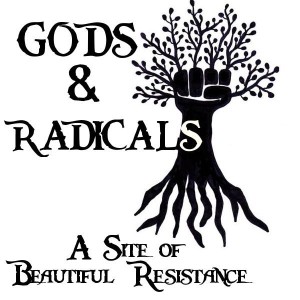When I was a kid growing up in the 1970s, I had a lot of musical influences. Both of my grandmothers had a love of music that was instilled to me. We had a stereo at home and Mom & Dad had a bunch of albums, everything from jazz to 50s and 60s folk, rock, & pop. As a little kid I went through an early Elvis infatuation (circa 1977, just before and after his death), and then I discovered KISS.
One genre I didn’t hear much of at home, but did hear at my Uncle Jack & Aunt Betty’s house, was progressive rock: Yes & King Crimson stand out; Floyd and Genesis not so much. This is significant because prog rock became — and remains so to this day — my favorite genre of music (if you force me to choose one). I also heard some edgier stuff (Bob Dylan) that I hadn’t heard much at home.
So I made this mix CD, burned it, wrote up some of commentary, and sent a couple copies to Jack & Betty. Some people have expressed an interest in it, so I decided to writeup this entry sharing it with the world.
Now, of course I’m an audiogeek, so I mastered this CD, adjusting the relative levels between songs (turning the overcompressed ones down a bit, for instance), and trimming off some transitional intros & outtros, making sure the pause between each song is right. This is what I grew up doing with cassette tapes, applied to the digital realm. Modern tools & 35 years of experience doing this means I’m a lot better at it now than I was on my Fisher Price record player, old GE portable cassette recorder, and the cheap cassettes I could afford at the time. :-)
But then, were I to simply upload a FLAC or an MP3 of my mix CD, I would be violating copyright law, idiotic as this fact is. Therefore, I will include the text of what I wrote, and I will embed each song from youtube. Enjoy!
1. Time Flies
Porcupine Tree
from The Incident
I was born in ’67
The year of Sgt. Pepper
And Are You Experienced?
Into a suburb of heaven
Yeah, it should’ve been forever
It all seems to make so much sense
But after a while
You realize time flies
And the best thing that you can do
Is take whatever comes to you
‘Cause time flies
OK, so I wasn’t born in ’67, it was ’69. But the sentiment of the song stands for me. Steven Wilson (see below for more of his solo stuff) is really doing a lot of great stuff these days with music. He is the main songwriter, singer, and guitarist for Porcupine Tree, who are now in hiatus. I really like the drummer, Gavin Harrison, who is now touring with King Crimson. I love the dynamics of Wilson’s arrangements. And he doesn’t have the best voice in the world, but I love what he does with it. He gets some really lush vocal harmonies. I can hear the Yes influence for sure. He also incorporates more ambient and electronic musical forms as well.
2. Good Intentions Paving Company
Joanna Newsom
from Have One On Me
It took me a while to get Joanna Newsom. Morgan turned me on to her, she’s a big fan of hers. She’s a master harpist (people like to call her the Jimi Hendrix of harp), and she’s part of the “freak folk” scene. Her voice is definitive for sure, but this is the first song of hers that I really got. It took her a long time to grow on me but now I really love her music. This song is another masterpiece at layering vocals. I love the Appalachian roots of her sound.
3. Lost In The Woods
Afghan Whigs
from Do To The Beast
Afghan Whigs are Cincinnati boys. They hit it big with Sub Pop in the early 90s when grunge happened. Angsty, angry, emotive young men they were. They were the local heroes because they got the most attention of anyone from the Cincinnati music scene back then. They reunited last year and did this album, and it’s fantastic. I think it’s the best thing they’ve ever done. I love the influence of funk; I think back to the King records/ Cincinnati influence.
Sin is a line of a poem
Unknown with a need to know
A throne in a room with a view
But you’re lost in the woods
4. Home Invasion &
5. Regret #9
Steven Wilson
from Hand. Cannot. Erase
So Steven Wilson realized after the last Porcupine Tree album in 2009 that he liked being a solo artist better. And I admit it’s pretty cool, because he gets some amazing musicians to play with him. The lead guitarist, Guthrie Govan, is one of my favorites playing today, but these two songs are driven by the organ/keyboard player, Adam Holzman, who has played with Miles Davis and a bunch of other people. I love the organ groove throughout Home Invasion. Nick Beggs on bass/Chapman Stick is also very good. Marco Minneman is a great drummer. As Steven Wilson says at his solo live shows “I’m by far the worst musician on this stage.” I can hear the King Crimson influence on this track for sure in some of the edgier pieces, but Wilson also gets some dreamy, ambient soundscapes in it. And a stellar guitar solo from Guthrie Govan in the second half of Regret #9. I love this stuff.
6. I Feel Your Love
Laura Marling
from Short Movie
[COULDN’T FIND A VIDEO]
Laura Marling is another big inspiration for Morgan, and she turned me on to her stuff. She’s young, like 23 or 24, but has a very mature sound to me. This album is her newest one, and is self produced after working with Ethan Johns (son of Glyn Johns, nephew of Andy Johns) for a few albums. Her vocals are outstanding.
7. These Walls
Kendrick Lamar
from To Pimp A Butterfly
[COULDN’T FIND A VIDEO]
If these walls could talk
(I can feel your reign when it cries, gold lives inside of you)
If these walls could talk
(I love it when I’m in it, I love it when I’m in it)
I don’t listen to a ton of hiphop, but this album is really good. I love the acoustic instruments on it, and the sonic spaces in the arrangement. And the vocals on this are really good. Some good guitar and organ too.
8. Matamoros
Afghan Whigs
from Do To The Beast
This one just has a groove that I love. The sound is a bit overcompressed for my taste, but for a song like this they can get away with it. It just kinda slams. I like the jarring string arrangement in parts of this, and just another masterpiece of midwestern angst.
9. Deform To Form A Star
Steven Wilson
from Grace For Drowning
This is from his 2nd solo album in 2011. All his solo albums are good. He’s a busy guy, having been remixing a lot of back catalogs for people like King Crimson. He’s fond of, good at, and known for doing mixes in 5.1 surround sound. It’d be awesome to hear his stuff in 5.1 sometime, I never have….. Anyway, Tony Levin does bass on this song, and Jordan Rudess on piano is really good. Theo Travis on clarinet. The sense of space in this song is really lovely. This is one of his strongest vocal arrangements he’s ever done, in my opinion. And as always with Steven Wilson, the dynamics on this song are stellar.
10. Gurdjieff’s Daughter
Laura Marling
from Short Movie
This is the single from her newest album. It’s nice to hear her play some electric guitar. Look at the stars. Keep those eyes wide….
Who’ll weep for them? Sometimes I do.
I do sometimes
You can’t see it, it might be behind you
Keep your eyes wide
Keep your eyes on the back of your mind
11. How Much A Dollar Cost
Kendrick Lamar
from To Pimp A Butterfly
A great question. How much does a dollar cost? Backing vocals on this by James Fauntleroy are gorgeous. I love Kendrick Lamar’s flow, and the fact that his lyrics are very intelligent and paint a vivid picture. Production on this entire album is really good.
12. These Sticks
Afghan Whigs
from Do To The Beast
Greg Dulli, the singer of Afghan Whigs, is at his achy-est here. And that’s saying a lot. He’s really got a good range, he can do the quieter, haunting stuff, but then he can snarl & belt with the best of them. Incidentally, Dulli sang the parts for John Lennon in the Beatles movie Backbeat in 1994. Not bad for a Cincinnati boy….. although technically he’s a Hamilton boy.
13. Happy Returns
Steven Wilson
from Hand. Cannot. Erase.
Hey brother, I’d love to tell you
I’ve been busy
But that would be a lie
‘Cause the truth is
The years just pass like trains
I wave but they don’t slow down
This one ends with a lush arrangement and another tasty guitar solo from Guthrie Govan.
Many Happy Returns indeed!











